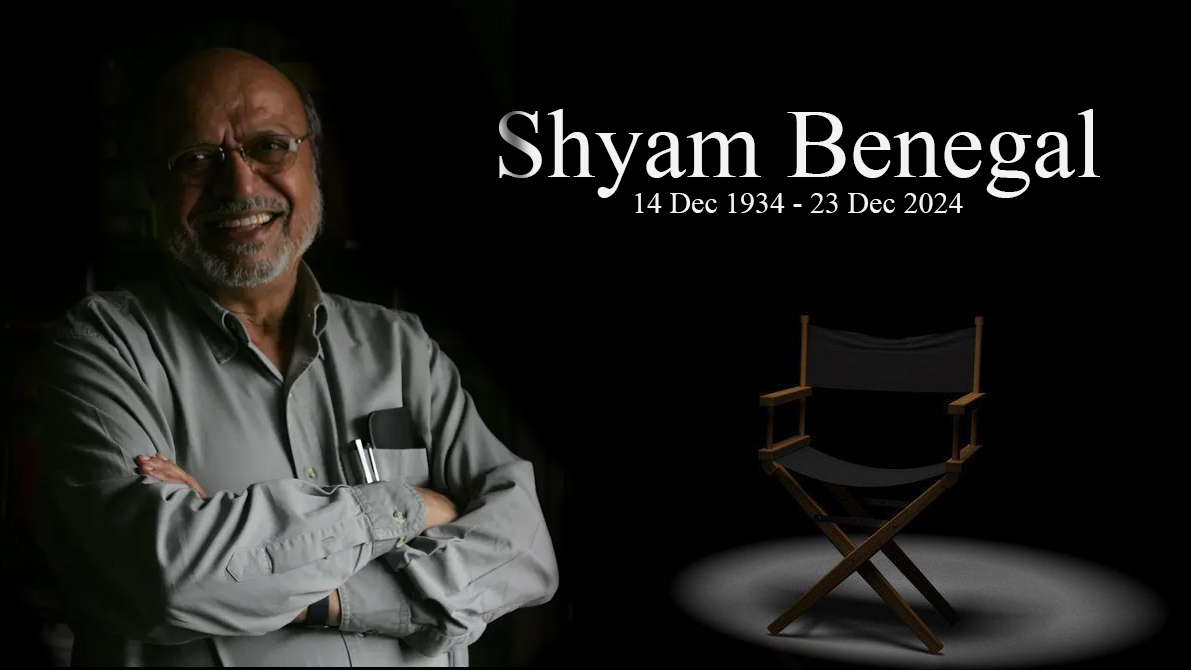NEW DELHI: Shyam Benegal, the visionary filmmaker who ushered in the era of parallel cinema in the 1970s and 1980s with iconic films such as “Ankur,” “Mandi,” and “Manthan,” passed away on Monday at the age of 90. The acclaimed auteur had been battling chronic kidney disease and died at Mumbai’s Wockhardt Hospital, where he was admitted to the ICU. His daughter, Pia Benegal, confirmed his passing, stating, “He passed away at 6.38 pm at Wockhardt Hospital Mumbai Central. He had been suffering from chronic kidney disease for several years, but it had gotten very bad. That’s the reason for his death.” He is survived by his daughter Pia and wife, Nira Benegal.
A Legacy in Indian Cinema
Shyam Benegal’s contributions to Indian cinema are unparalleled. He pioneered the parallel cinema movement which sought to explore social issues and realistically present them, distinct from the mainstream Bollywood fare. His films often delved into themes of rural distress, feminist concerns, and the complexities of human relationships.
ALSO READ: Legendary tabla virtuoso Zakir Hussain dies at 73, world mourns musical icon
Born on December 14, 1934, in Tirumalagiri, now in Telangana, Benegal grew up with cinema around him. His father was a still photographer who also made short films and he was a second cousin of the legendary filmmaker Guru Dutt. After earning a master’s degree in economics from Osmania University in Hyderabad, Benegal moved to Mumbai to pursue a career in filmmaking. He initially worked as a copywriter in an advertising agency before transitioning to making ad films and documentaries for the Films Division of India.
Benegal made his feature film debut with “Ankur” in 1974 which was a powerful narrative exploring the feudal system in rural India. The film marked the debut of Shabana Azmi who would go on to become one of India’s most celebrated actresses. Benegal’s subsequent films including “Nishant,” “Bhumika,” “Manthan,” and “Mandi,” further solidified his reputation as a filmmaker who was unafraid to tackle challenging subjects.
His biopics, such as “The Making of the Mahatma” and “Netaji Subhas Chandra Bose: The Forgotten Hero,” showcased his ability to bring historical figures to life with depth and nuance. His most recent work “Mujib: The Making of a Nation” was a 2023 biographical film and was highly acclaimed.
ALSO READ: Zakir Hussain: Lifetime of achievements that redefined rhythm
Beyond feature films, Benegal’s work in television also left an indelible mark. His epic television series “Bharat Ek Khoj,” based on Jawaharlal Nehru’s “Discovery of India,” and “Samvidhaan,” a 10-part series on the making of the Indian Constitution, are considered landmark works in Indian television.
In an interview on his 90th birthday, Benegal spoke candidly about his work and health. “I’m working on two to three projects; they are all different from one another. It’s difficult to say which one I will make. They are all for the big screen,” he said. He also mentioned his frequent hospital visits and being on dialysis but his passion for storytelling remained undiminished.
Benegal’s filmmaking was both deeply personal and inherently political, addressing issues of class and caste struggles, feminist concerns, and rural distress. His films were known for their incisive gaze and often somber yet satirical treatment of subjects. He preferred his work to be called “new or alternate cinema” rather than “middle cinema.”
Benegal’s influence extended beyond his films. He collaborated with some of the most talented individuals in Indian cinema, including playwright Vijay Tendulkar, composer Vanraj Bhatia, and cinematographer Govind Nihalani. His legacy will continue to inspire future generations of filmmakers and audiences. Shyam Benegal’s passing marks the end of an era in Indian cinema. His contributions to film and television have left an indelible mark on the industry and his legacy will continue to be celebrated for years to come.











